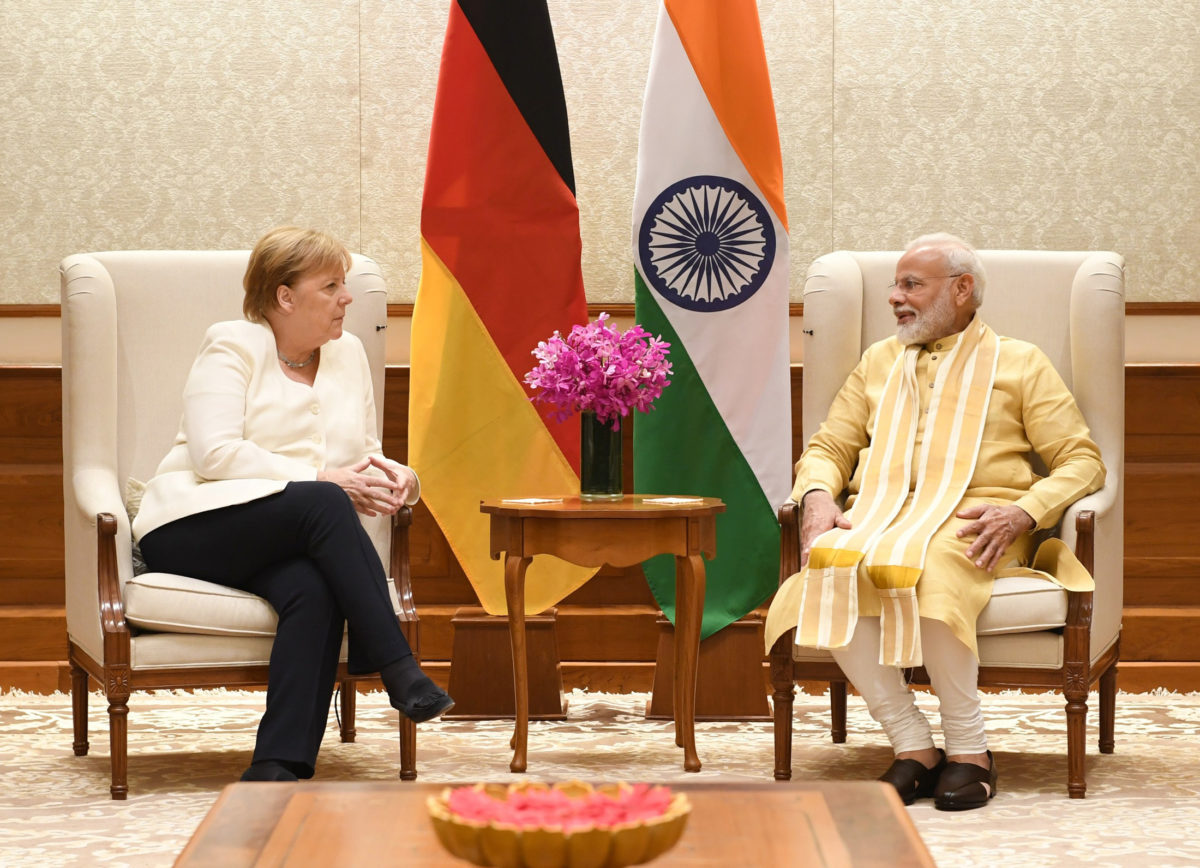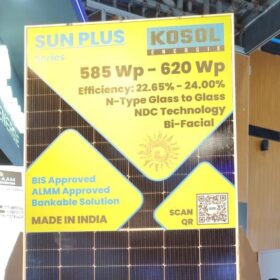The recent visit of German Federal Chancellor Dr Angela Merkel from October 31 to November 1 saw both the countries strengthening cooperation in the field of renewable energy and identifying green mobility as an important area of collaboration.
To help India’s clean energy transition, Germany announced a 200 million euros loan support for Indian DISCOMs, in addition to its earlier commitment of one billion euros in India’s solar projects through Indo-German Solar Energy Partnership programme and over one billion euros for India’s Green Energy Corridor.
The loan agreement worth 200 million euros was signed between German development bank KfW and Power Finance Corporation (PFC) during the 8th Indo-German Energy Forum Meeting in New Delhi. As part of this project, PFC will arrange a long-term investment facility, which will in turn issue loans to Indian distribution companies. The aim of the planned investment measures is to reduce technical losses and, as a result, ensure a more stable and more efficient climate-friendly energy supply in India.
Among other key agreements, German multinational Siemens signed an MoU with state-owned power generator NTPC on proof of hydrogen economy for application in power, mobility and industry. It signed another MoU with sustainability thinktank The Energy and Resources Institute on technology collaboration to support the energy transition in India.
Green mobility
The German delegation visit which came at a time when India is battling the worst pollution levels in Delhi and NCR, also saw the two countries recognizing the urgent need of providing low-carbon and sustainable mobility solutions that serve the needs of all.
Both sides agreed to foster cooperation on low-carbon mobility solutions and signed the new Joint Declaration of Intent on the Indo-German Partnership on Green Urban Mobility wherein Germany offered to provide additional concessional finance of one billion euros to support improvements of green urban mobility infrastructure and services and strengthen capacities of national, state and local institutions to design and implement sustainable, inclusive and smart mobility solutions in Indian cities.
Rooftop solar
The German side also extended support for smaller and more flexible rooftop systems in India, in addition to its current engagement in rooftop solar expansion in India through The Indo-German Solar Energy Partnership programme.
Making the announcement at the IGEF 2019, Norbert Barthle, parliamentary state secretary to the Federal Minister for Economic Cooperation and Development, Germany, said: “We also recognize on the Indian side there is a big interest in smaller and more flexible rooftop systems. We try to support this.”
Sharing the details of work with their prior solar investment in India, he said: “The Indo-German Solar Energy Partnership programme [for rooftop solar expansion in India] is very important for us in our coalition. With this project, we are able to contribute directly 2.25 GW of renewable energy. We are able to supply clean energy for 220,000 households, saving 155,000 tonnes of CO2 every year.”
At the same time, “while production of clean energy is important, technical feasibility for its transport assumes equal importance. That’s where with this funding from Germany of one billion euros so far, 7500 km of new transmission lines are being built and more than 165 substations set up.”
The IGSP project commissioned by the German Government under its German Climate Technology Initiative is being implemented by GIZ in cooperation with the Ministry of New and Renewable Energy, the Government of India, to facilitate and expedite the rooftop sector development in India.
This content is protected by copyright and may not be reused. If you want to cooperate with us and would like to reuse some of our content, please contact: editors@pv-magazine.com.









1 comment
By submitting this form you agree to pv magazine using your data for the purposes of publishing your comment.
Your personal data will only be disclosed or otherwise transmitted to third parties for the purposes of spam filtering or if this is necessary for technical maintenance of the website. Any other transfer to third parties will not take place unless this is justified on the basis of applicable data protection regulations or if pv magazine is legally obliged to do so.
You may revoke this consent at any time with effect for the future, in which case your personal data will be deleted immediately. Otherwise, your data will be deleted if pv magazine has processed your request or the purpose of data storage is fulfilled.
Further information on data privacy can be found in our Data Protection Policy.